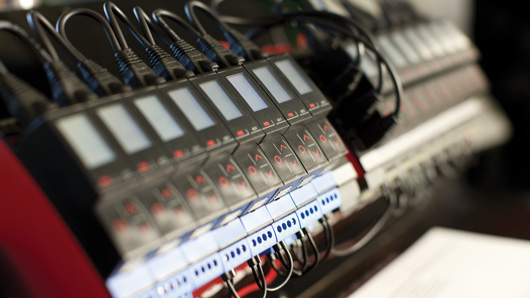In the realm of technology, the terms 'electrical' and 'electronics' are often used interchangeably, creating a cloud of confusion for those outside the industry. However, these two fields, while interconnected, have distinct differences that set them apart. This article aims to delve into the major differences between electrical and electronics, shedding light on their unique characteristics, applications, and the interplay between them.
The first point of divergence between electrical and electronics lies in their fundamental definitions. Electrical engineering is a broad field that deals with the study and application of electricity, electromagnetism, and electronics. It encompasses a wide range of subfields including power engineering, telecommunications, control systems, and signal processing. On the other hand, electronics engineering, a subset of electrical engineering, focuses specifically on the design and utilization of electronic circuits, components, and systems.
The second major difference lies in the nature of the devices they deal with. Electrical engineering primarily concerns itself with high power or macro devices such as power transmission systems and electric motors. These devices work on the principle of electromagnetism and deal with electric current in the form of alternating current (AC) or direct current (DC). Conversely, electronics engineering deals with low power or micro devices like semiconductors and integrated circuits. These devices primarily work on the principle of electron flow and deal with small direct currents.
The third distinction comes in the form of their applications. Electrical engineering finds its applications in large-scale systems such as power generation and distribution, electric vehicle technology, and industrial machinery. Electronics engineering, however, is more prevalent in small-scale applications like mobile devices, computers, and consumer electronics.
The fourth difference is in the materials used. Electrical engineering predominantly uses conductive materials like copper and aluminum for the transmission of electricity. In contrast, electronics engineering uses semiconductor materials like silicon and germanium to design electronic devices.
Lastly, the troubleshooting methods in both fields differ significantly. Electrical engineers often use techniques like circuit analysis and power calculations to diagnose and fix issues. Electronics engineers, on the other hand, use methods like signal analysis and debugging to resolve problems.
In conclusion, while electrical and electronics engineering are closely linked, they have distinct differences in their definitions, the nature of devices they deal with, their applications, materials used, and troubleshooting methods. Understanding these differences is crucial for professionals in these fields to effectively design, develop, and maintain systems in their respective domains. As technology continues to evolve, the lines between these two fields may blur further, but their core principles will remain distinct, each contributing uniquely to the technological advancements of our time.

